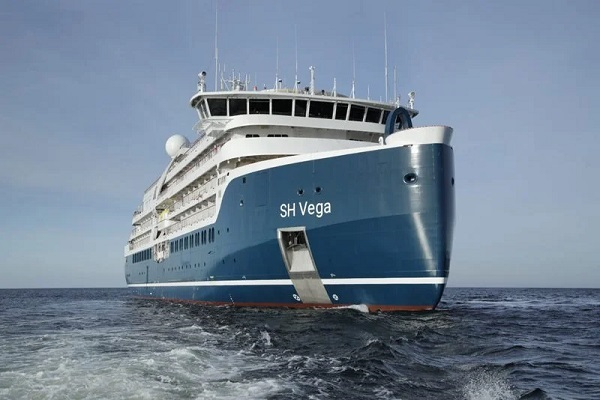Captain Georgina Jopap, a Maritime Safety and Security Consultant, has cautioned seafarers to speak up to harassments meted out to them in their line of duty onboard ship or vessels.
The sea environment, she said was a bit hostile and isolated, where one had no support group or family, therefore bullying from superiors or peers could make the environment toxic to seafarers.
She gave the advice at the observation of the 2025 International Day of the Seafarer in Accra on the theme: “My Harassment-Free Ship”.
Captain Jopap said although she did not face a number of bullying during her active days as a seafarer, she and other colleagues were deliberately targeted to do the dangerous, difficult and dirty jobs.
“The perpetrators always use excuses like they were only trying to make the victim tough, but that isn’t right,” she said.
Captain Jopap, also the first African woman to qualify as a Master Mariner, said fortunately there were now policies on harassment and called for seafarers to be sensitised on their rights onboard.
“Make sure you understand what you are doing and especially that you the lady can do better than the men, it is then that you can stand up to bullies. If you just need favour from them, then you will become a victim. But if you know your right, and have boundaries for yourself, the perpetrators will know how far they can go with you,” she stated.
The Captain admonished government to make it easy for people to report by creating a confidential space for victimised seafarers to report for possible redress.
She also encouraged seafarers to have passion for the sea job which she said was very encouraging and rewarding.
Captain Catherine Haizel, the Country Inspector for the International Transport Workers Federation (ITF), encouraged people to always speak up to let the appropriate individuals investigate and seek redress at work settings.
“It is high time perpetrators know that any form of harassment is unacceptable,” she noted.
She urged crew managers to employ the services of equal number of both genders onboard a ship at a time to make seafarers comfortable in the midst of one another to deliver as expected of them.
Captain Haizel bemoaned the ineffective enforcement of policies against workplace harassment and called for bullying to be taught as part of the training courses for seafarers to enable them to stand up for themselves.
“As seafarers, immediately look out for contacts of right people from documents to report challenges to when you get onboard,” she advised.
Mr Francis Bebuksi, a Lawyer and an Assistant Chief Labour Officer, Labour Department, said it was prudent that seafarers reported cases of harassment to them, explaining that they aligned with the labour laws and demands of the International Labour Organization to address such issues.
He also encouraged them to seek redress in court, adding: “Try to produce evidence of harassment or bully to make it easier for justice to be sought. If you don’t have any evidence at all, at least let somebody know if you are being harassed so that when you come to report, someone can come and testify in your favour.”
For the part of Mr Awudu Inusah, Principal Maritime Administrative Officer, Ghana Maritime Authority, the vessel was the home and workplace of seafarers that accommodated people from different cultural backgrounds.
“If a seafarer is uncomfortable with some people on board, he or she could report their challenges to us or to personnel on shore when possible,” he said.
With Ghana as a port state, he said officers were supposed to look out for the safety of seafarers and encouraged all seafarers to acquaint themselves with the maritime labour convention.
